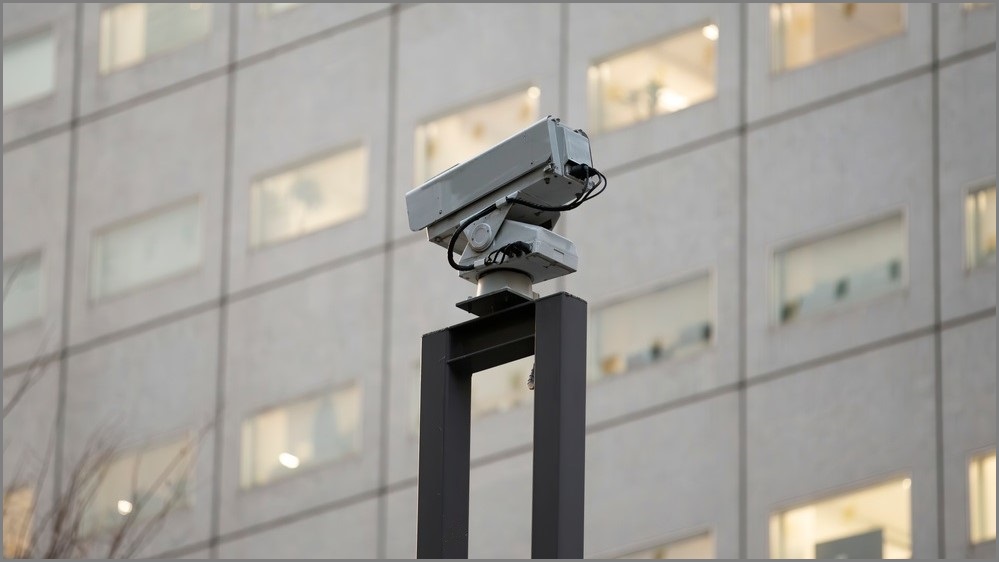The Australian government remains “concerned” about the use of surveillance cameras provided by two Chinese companies in department offices after the US and UK moved to block the use of these devices.
The US and UK governments this week moved to ban the sale of surveillance cameras by China-based companies Hikvision and Dahua, and to prevent their use in government buildings, due to national security concerns.
These companies are subject to China’s National Intelligence Law, which compels companies based in China to pass on information to intelligence authorities.
This law applies extraterritorially, meaning China-based companies could be forced to hand over data when they are operating in other countries.
In the US, these companies have been banned from selling any new equipment because they pose “unacceptable risks to national security”, according to a Federal Communications Commission notice.
In the United Kingdom, cameras supplied by Hikvision and Dahua have been banned at “sensitive sites”.
In Australia, Home Affairs and ASIO representatives were asked whether Australia would follow in the footsteps of the US and UK in banning products from these companies at Senate Estimates hearings this week.
ASIO boss Mike Burgess said he “absolutely” has concerns about these cameras being used at government sites, as InnovationAus reported.
“I would share with you the concern…there is nothing wrong with the technology, it’s where the data that it collects and where it would end up and what else it can be used for that would be of great concern to me and my agency,” Burgess said.
“Security cameras, obviously, collect a lot of data. It’s an issue that perhaps someone should look into, but it’s not front of mind for me and my organisation at this point in time.”
Home Affairs deputy secretary Marc Ablong said the government “remained concerned” about the use of these devices, and that several security agencies have opted to avoid using them.
Home Affairs’ own network does not utilise any Hikvision or Dahua products, but the department’s leased offices in Canberra and Adelaide do have security companies provided by these companies.
This will be a “legitimate area” for discussion when the future leases are discussed.
Ablong said that Australia wasn't briefed by the US or UK before the countries took the coordinated move, but that Home Affairs is now putting together advice about the bans for the government.
The US Federal Communications Commission issued a notice banning the sale of equipment from the two companies this week.
“These new rules are an important part of our ongoing actions to protect the American people from national security threats involving telecommunications,” it said.
This order blocks the equipment for the “purpose of public safety, security of government facilities, physical surveillance of critical infrastructure, and other national security purposes”.
The order applies only to future equipment to be imported or sold in the US by these companies.
In response, Dahua said the ban doesn’t apply to products which have already been authorised in the US.
“We believe that the actions taken in the order go far beyond the Commission’s statutory authority, and will do little or nothing to protect US national security,” the company said in a statement.
Hikvision also hit back at the US ban.
“Hikvision video security products present no security threat to the United States and there is no technical or legal justification for the FCC decision to remove Hikvision’s future products from the equipment authorisation process,” the company said in a statement.
“This decision by the FCC will do nothing to protect US national security, but will do a great deal to make it more harmful and more expensive for US small businesses, local authorities, school districts, and individual consumers to protect themselves, their homes, businesses and property.”
On the same day, the United Kingdom government banned the use of Hikvision and Dahua cameras at “sensitive sites”, preventing authorities from installing technologies from companies subject to China’s national intelligence law.
The Australian government has been aware of the potential security issues around these cameras since at least 2018, when the ABC 7.30 Report revealed that hundreds of thousands of them were in use across Australian military bases, council offices, government departments and in public places.
The report followed claims by US lawmakers that the China-based companies are creating a “surveillance network” through the cameras, and faced accusations of spying on behalf of the Chinese government.










